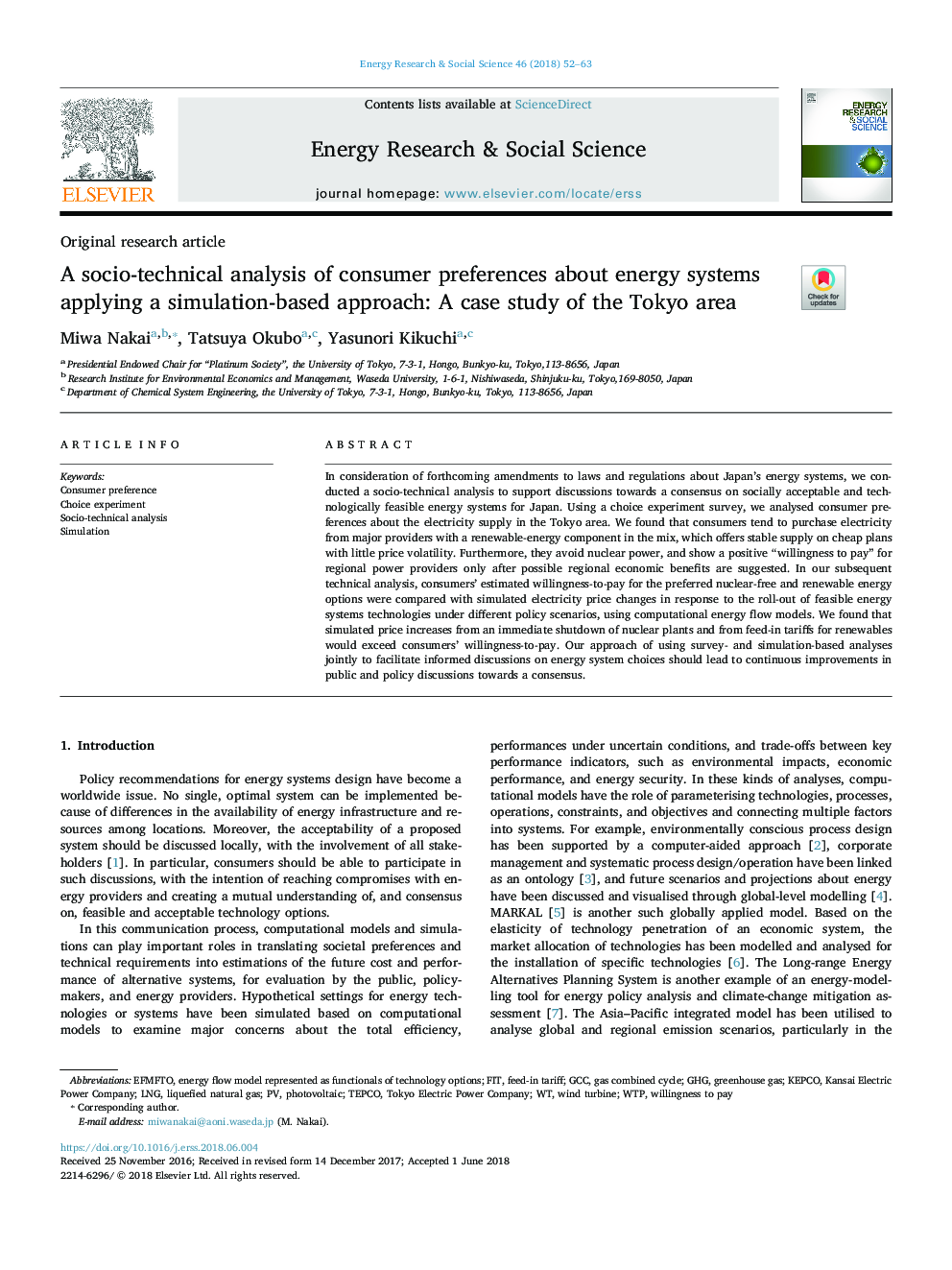| Article ID | Journal | Published Year | Pages | File Type |
|---|---|---|---|---|
| 6557077 | Energy Research & Social Science | 2018 | 12 Pages |
Abstract
In consideration of forthcoming amendments to laws and regulations about Japan's energy systems, we conducted a socio-technical analysis to support discussions towards a consensus on socially acceptable and technologically feasible energy systems for Japan. Using a choice experiment survey, we analysed consumer preferences about the electricity supply in the Tokyo area. We found that consumers tend to purchase electricity from major providers with a renewable-energy component in the mix, which offers stable supply on cheap plans with little price volatility. Furthermore, they avoid nuclear power, and show a positive “willingness to pay” for regional power providers only after possible regional economic benefits are suggested. In our subsequent technical analysis, consumers' estimated willingness-to-pay for the preferred nuclear-free and renewable energy options were compared with simulated electricity price changes in response to the roll-out of feasible energy systems technologies under different policy scenarios, using computational energy flow models. We found that simulated price increases from an immediate shutdown of nuclear plants and from feed-in tariffs for renewables would exceed consumers' willingness-to-pay. Our approach of using survey- and simulation-based analyses jointly to facilitate informed discussions on energy system choices should lead to continuous improvements in public and policy discussions towards a consensus.
Keywords
Related Topics
Physical Sciences and Engineering
Energy
Energy (General)
Authors
Miwa Nakai, Tatsuya Okubo, Yasunori Kikuchi,
